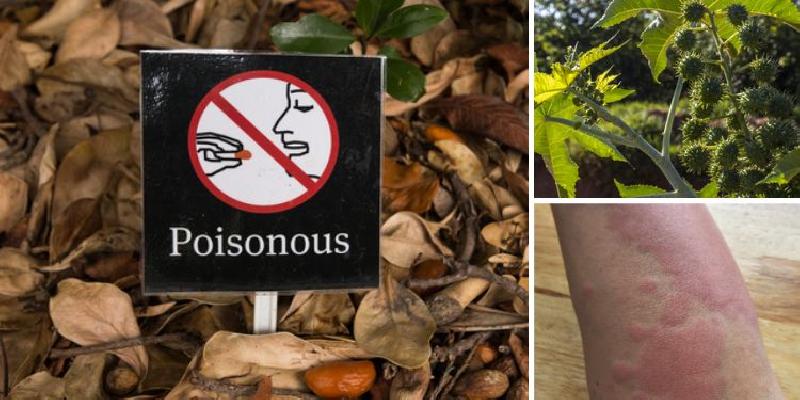Some of the links in this post may contain affiliate links for your convenience. As an Amazon Associate, I may earn a small commission from qualifying purchases without any increase in price to you.
Witch hazel, a humble shrub native to North America, might just become your new favorite multi-purpose tool for your family preparedness kit. Beyond its familiar role in skincare, witch hazel boasts a surprising range of benefits that can be valuable in various emergency situations.
What is Witch Hazel?
Witch hazel is a versatile natural remedy suitable for various household needs and personal hygiene care. Whether you’re looking for an acne-fighting toner, a natural pain reliever, or a DIY cleaning solution, witch hazel might just become your new go-to natural remedy. While witch hazel readily offers its benefits on store shelves, consider delving deeper into the fascinating world of herbal medicine. Learning to identify, harvest, and utilize plants like witch hazel empowers you to create your own natural remedies. Imagine cultivating your own witch hazel shrub, nurturing its growth, and then crafting personalized solutions for various needs, from soothing sunburns to addressing minor skin irritations.
Witch hazel is a flowering shrub native to North America, particularly the eastern regions. It has been used for centuries for its medicinal properties and has become increasingly popular in recent years, especially for its skincare benefits. Its astringent and anti-inflammatory properties contribute to its diverse range of applications, making it a valuable addition to any home. However, its uses extend far beyond the bathroom shelf. Here are some surprising uses for witch hazel:
What is Witch Hazel Good For
- Base for Herbal Liniments: Witch hazel’s properties make it a suitable base for creating homemade liniments to soothe muscle aches and pains.
- Dandruff Relief: Massage witch hazel into your scalp to combat dandruff and promote a healthy scalp environment.
- Spider Veins: Although there is limited scientific evidence to support this claim, witch hazel is a folk remedy for reducing spider veins.
- Soothe Diaper Rash: Gently apply witch hazel with a cotton ball to the affected area to alleviate diaper rash discomfort. Always test on a small area first and discontinue use if irritation occurs.
- Sunburn Relief: Witch hazel’s anti-inflammatory properties can help soothe sunburnt skin and potentially prevent peeling. Apply a cool compress soaked in witch hazel for relief.
- Wound Care: Witch hazel’s astringent properties make it suitable for gentle wound disinfection for both humans and animals. Note: Consult a veterinarian before using on pets.
- Tick Removal: Apply a few drops of witch hazel to loosen a tick’s grip, making removal easier. And not just for pets, but adults and children as well. Consider keeping a small bottle in your pet evacuation kit.
- Flea Repellent: Explore online recipes for using witch hazel as a natural flea repellent.(Diatomaceous earth is helpful for dealing with fleas, also!)
- Makeup Remover. Mix up your own natural makeup remover with this herb. It’s ultra frugal, too!
- Razor Burn: Witch hazel’s natural anti-inflammatory properties mean it can reduce or prevent painful razor burn.
- DIY Floor Cleaner and Makeup Remover: Take advantage of witch hazel’s cleaning properties by incorporating it into your homemade floor cleaner recipe or using it as a gentle makeup remover.
- Homemade Natural Deodorant: Yep. There are tons and tons of recipes on Pinterest for DIY deodorants with witch hazel, although a spritz of witch hazel on each armpit is effective on its own for many people.
- Bruises and Swelling: Witch hazel can reduce bruises and swelling. Keep a small bottle in your first aid kit.
- Bug Spray and Bite Relief: Combine witch hazel with essential oils to create a natural bug repellent. Additionally, witch hazel can help soothe itchiness and swelling from bug bites.
Expert Tips for Using Witch Hazel
- Always dilute witch hazel with water before applying it directly to your skin, especially on sensitive areas.
- Perform a patch test on a small area of your skin before widespread application to check for any allergic reactions.
- Consult a healthcare professional before using witch hazel for medicinal purposes, especially if you have any underlying health conditions or are pregnant or breastfeeding.
- Purchase witch hazel from reputable sources and ensure it’s labeled for topical use only.
Frequently Asked Questions
While some sources suggest consuming witch hazel tea for medicinal purposes, it’s generally not recommended due to potential side effects. Consult a healthcare professional before attempting internal use.
When used topically and diluted properly, witch hazel is generally considered safe for most people. However, it can cause skin irritation or dryness in some individuals.
Final Thoughts
Witch hazel’s versatility and natural properties make it a valuable addition to your family’s preparedness kit. From aiding in wound care and soothing discomfort to deterring pests and disinfecting surfaces, witch hazel offers a natural and practical resource for various situations. Remember to prioritize safety and responsible use to experience the full potential of this unique plant extract. Any time you can use one product for multiple uses, you are saving money and time. Witch hazel is one of those versatile products that you’ll end up using in more ways than you imagined.
via thesurvivalmom




